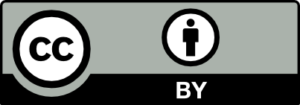Action Plan for Diamond Open Access
March 2022
Zoé Ancion (French National Research Agency), Lidia Borrell-Damián (Science Europe), Pierre Mounier (OPERAS), Johan Rooryck (cOAlition S), Bregt Saenen (Science Europe)
Science Europe, cOAlition S, OPERAS, and the French National Research Agency (ANR) present an Action Plan for Diamond Open Access to further develop and expand a sustainable, community-driven Diamond OA scholarly communication ecosystem.
Introduction
This Action Plan provides a set of priority actions to further develop and expand a sustainable, community-driven Diamond scholarly communication ecosystem. It aims to bring together Diamond Open Access journals and platforms around shared principles, guidelines, and quality standards respecting the cultural, multilingual and disciplinary diversity that constitute the strength of the sector. Researchers, editors, and research institutions will benefit from this Action Plan.
‘Diamond’ Open Access refers to a scholarly publication model in which journals and platforms do not charge fees to either authors or readers. Diamond Open Access journals represent community-driven, academic-led and -owned publishing initiatives. Serving a fine-grained variety of generally small-scale, multilingual, and multicultural scholarly communities, these journals and platforms embody the concept of bibliodiversity. For all these reasons, Diamond Open Access journals and platforms are equitable by nature and design.
The landmark ‘Open Access Diamond Journals Study’ (OADJS) uncovered the vast size and scope of this publication ecosystem. The estimated (2021) 17.000 to 29.000 Diamond Open Access journals worldwide are an essential component of scholarly communication, publishing 8 to 9% of the total article publication volume and 45% of Open Access publishing.
Despite these obvious strengths, Diamond Open Access is held back by challenges related to the technical capacity, management, visibility, and sustainability of journals and platforms. More dialogue and commitment is required between researchers, RFOs, RPOs, university libraries, university presses, faculties, departments, research institutes, scholarly societies, ministries, and service providers to properly support this part of the scholarly communication sector.
This Action Plan aims at substantially increasing the capacity of Diamond journals to provide innovative, valid, reliable, and accessible publishing services. Following up on the recommendations of the OADJS, the action plan aims to support Diamond Open Access by focusing on four central elements for its further development: efficiency, quality standards, capacity building, and sustainability.





